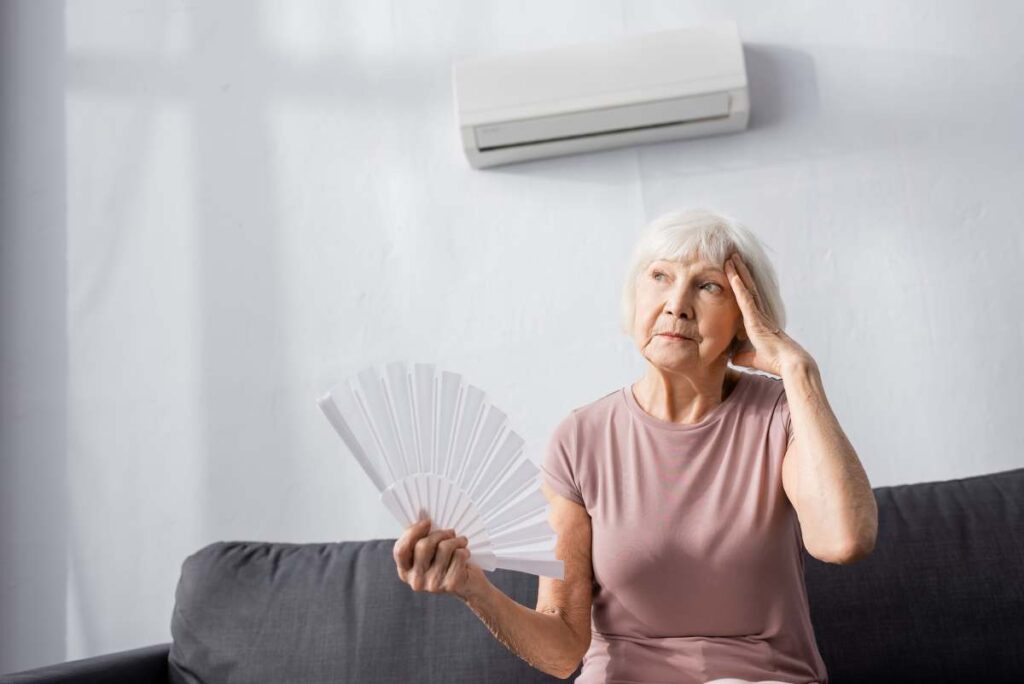
With warm temperatures set to continue across the state, local health and aged care organisations are encouraging residents to stay safe and avoid heat-related illness this summer.
Country to Coast Queensland (CCQ) Chief Executive Julie Sturgess said hot weather could place great physical stress on the body and it was important to take steps to beat the heat as early as possible.
“Extreme heat can affect anyone, with heat-related illness varying from relatively mild heat exhaustion to the potentially life-threatening condition of heat stroke,” Julie said.
“Many people may not realise that of all types of extreme weather, heatwaves contribute to more deaths in Australia than any other natural disaster.
“Those most at risk are older people, infants and young children, people who live alone and people with a medical condition.”
Julie urged that if someone was showing severe signs of heat-related illness, it was important to seek urgent medical attention from a GP or the emergency department at the nearest hospital.
“Residents in Bundaberg or Rockhampton that need urgent medical attention due to heat-related illness can also visit recently opened Medicare Urgent Care Clinics in those cities,” she said.
“I also cannot stress enough how important it is to ensure children and pets are not left alone in cars.
“They can quickly become distressed and seriously ill in a matter of minutes.
“By being prepared and taking simple precautions, we can all reduce the risk of heat-related illness during these periods of prolonged high temperatures.”
To help minimise the risk of heat-related illness, CCQ advised to:
- Drink plenty of water and remember to carry some with you when out and about.
- Spend as much time as possible in cool or air-conditioned buildings (shopping centres, libraries, cinemas or community centres).
- Keep yourself cool by using wet towels, putting your feet in cool water and taking cool (not cold) showers.
- Block out the sun at home during the day by closing curtains and blinds.
- Stay out of the sun during the hottest part of the day and if you must go out, wear a hat and sunscreen.
- Wear light-coloured, loose-fitting clothing made from natural fibres like cotton and linen.
- Avoid intense activity like exercise, renovating and gardening.
- Watch or listen to news reports for more information.
- Don’t forget your pets – give them a cool bath, a wet towel to lie on, a place next to a fan and plenty of fresh water.
BlueCare Group General Manager for Community Ms Maria McLaughlin-Rolfe said it was critical for older people in particular, and those who care for them, to understand the potential dangers during these hot weather conditions.
“As we age our bodies cannot regulate our temperature as well, making it much easier to overheat and become seriously dehydrated,” Maria said.
“This means that in extremely hot weather, like we are experiencing now, older Queenslanders are at serious risk of heat-related illnesses, including life-threatening heat exhaustion and heat stroke.
“We should all know the signs and how to quickly respond.”
BlueCare advised that anyone experiencing dehydration required rest and plenty of water and should avoid caffeine and alcohol, while those experiencing symptoms of heat exhaustion and stroke required immediate action and medical attention.
According to BlueCare, signs of heat-related illness include:
- Dehydration – dizziness, tiredness, irritability, loss of appetite, bright or dark urine.
- Heat cramps – profuse sweating, painful muscle cramps usually in the legs and abdomen.
- Heat exhaustion – dry mouth and eyes, nausea or vomiting, pale complexion, poor coordination.
- Heat stroke – fast and shallow breathing, rapid pulse, swollen tongue, confusion and poor coordination.
Maria said BlueCare had recently teamed up with Griffith University, supported by funding from the Queensland Government, to develop heat health resources specifically for older Queenslanders.
“Our older generation is very vulnerable and less likely to identify or express concerns, so it is critical the rest of the community keeps an eye on them during these periods,” she said.
“Our carers are vigilant during these times, but we need everyone that interacts with older people in the community to be aware, help minimise any risks or call for help if concerned.”
BlueCare has developed a suite of tools and resources for older people and those who care for them on how to manage the heat, including information on how to prepare for heatwaves, identify heat-related illnesses, staying hydrated, tips for keeping the home cool and the safe storage of medicine.
These resources are available free here.




